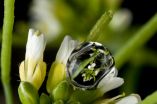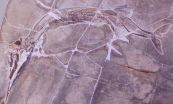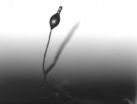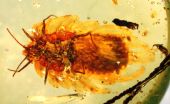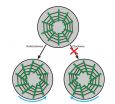Online illusion: Unplugged, we really aren't that smart
2015-03-31
(Press-News.org) The Internet brings the world to our fingertips, but it turns out that getting information online also has a startling effect on our brains: We feel a lot smarter than we really are, according to a Yale-led study published March 30 in the Journal of Experimental Psychology.
In nine different experiments with more than 1,000 participants, Yale psychologists found that if subjects received information through Internet searches, they rated their knowledge base as much greater than those who obtained the information through other methods.
"This was a very robust effect, replicated time and time again," said Matthew Fisher, a fourth-year Ph.D. student and the lead author of the study. "People who search for information tend to conflate accessible knowledge with their own personal knowledge."
For instance, in one experiment people searched online for a website that answers the question, "How does a zipper work?" The control group received the same answer that they would have found online, but without searching for it themselves. When later asked how well they understood completely unrelated domains of knowledge, those who searched the Internet rated their knowledge substantially greater than those who were only provided text. Prior to the experiment, no such difference existed.
The effect was so strong that even when a full answer to a question was not provided to Internet searchers, they still had an inflated sense of their own knowledge.
"The cognitive effects of 'being in search mode' on the Internet may be so powerful that people still feel smarter even when their online searches reveal nothing," said Frank Keil, the Charles C. and Dorathea S. Dilley Professor of Psychology and Linguistics and senior author of the paper.
Keil recalls being cut off from Internet access during a hurricane, and says, "I felt myself becoming stupider by the hour." For the younger generation, the effect may be even more pronounced. "The cell phone is almost like the appendage of their brain," he said. "They don't even realize it's not real until they become unplugged."
INFORMATION:
The research was made possible by a grant from the Fuller Theological Seminary/Thrive Center for Human Development in concert with the John Templeton Foundation.
ELSE PRESS RELEASES FROM THIS DATE:
2015-03-31
WASHINGTON - Searching the Internet for information may make people feel smarter than they actually are, according to new research published by the American Psychological Association.
"The Internet is such a powerful environment, where you can enter any question, and you basically have access to the world's knowledge at your fingertips," said lead researcher Matthew Fisher, a fourth-year doctoral candidate in psychology at Yale University. "It becomes easier to confuse your own knowledge with this external source. When people are truly on their own, they may be wildly ...
2015-03-31
PHILADELPHIA - HIV (human immunodeficiency virus)-positive kidney transplant patients experienced superior outcomes when compared to kidney transplant patients with Hepatitis C and those infected with both HIV and Hepatitis C, according to a study led by researchers at the Perelman School of Medicine at the University of Pennsylvania and published online in Kidney International.
The research team examined outcomes of 124,035 adult kidney recipients transplanted between 1996 and 2013, and found the three-year survival rate of HIV patients (89 percent) was actually very ...
2015-03-31
Inhalable particles include all particulate matter with a diameter smaller than 10 micrometers (PM10). In this group a distinction is made between even finer particles smaller than 2.5 micrometers (PM2.5) in diameter, which can deeply enter the lung, and ultrafine particles with diameters less than 0.1 micrometers (100 nanometers), which can also enter the blood stream.
The research team at Helmholtz Zentrum München led by Prof. Dr. Annette Peters, head of the research program Epidemiology at the German Center for Diabetes Research (DZD), and Dr. Alexandra Schneider ...
2015-03-31
Scientists at the John Innes Centre have discovered why the first buds of spring come increasingly earlier as the climate changes.
Dr Steven Penfield at the JIC found that plants have an ideal temperature for seed set and flower at a particular time of year to make sure their seed develops just as the weather has warmed to this 'sweet spot' temperature.
Dr Penfield, working with Dr Vicki Springthorpe at the University of York, found the sweet spot for the model plant Arabidposis thaliana is between 14-15?C. Seeds that develop in temperatures lower than 14?C will almost ...
2015-03-31
Saurichthys is a predatory fish characterized by a long thin body and a sharply pointed snout with numerous teeth. This distinctive ray-finned fish lived in marine and freshwater environments all over the world 252-201 million years ago during the Triassic period. Two new species of this extinct fish have been discovered by paleontologists at the University of Zurich, working in collaboration with researchers in Germany and China. The first species, «Saurichthys breviabdominalis», is named for its relatively short body and the second, «Saurichthys rieppeli», ...
2015-03-31
Darwin's evolutionary theory predicts survival of the fittest. So why do different survival tactics co-exist, if evolution should always favour the winning strategy?
To answer that question scientists at the Universities of Bath and Manchester have been studying a single-celled amoeba, also known as slime mould, which displays certain behaviours that have been labelled as "cheating" or "cooperating".
In a study, published in the prestigious journal Current Biology, the team found that cheaters don't necessarily win in terms of overall survival, suggesting that biologists ...
2015-03-31
Scientists at the University of Bonn, together with colleagues from China, UK and Poland, have described the oldest evidence of brood care in insects: it is in a female scale insect with her young that is encased in amber as a fossil. The approximately100-million-year-old "snapshot" from the Earth's history shows the six millimetre long tiny insect with a wax cocoon, which protected the eggs from predators and drying out plus associated young nymphs. The researchers are now presenting their results in the respected journal eLIFE.
The small female insect with the waxy ...
2015-03-31
Face recognition security on smartphones can be significantly improved if users store an 'average' photo of themselves, according to new research by scientists at the University of York.
A research team led by Dr David Robertson, of the Department of Psychology's FaceVar laboratory at York, found that combining different pictures of the user, rather than a single 'target' image, leads to much better recognition across all kinds of daily settings. The research is published in the journal PLOS ONE.
The researchers examined the performance of the 'face unlock' system ...
2015-03-31
Researchers at the Mechanobiology Institute (MBI) at the National University of Singapore have discovered that the inherent 'handedness' of molecular structures directs the behaviour of individual cells and confers them the ability to sense the difference between left and right. This is a significant step forward in the understanding of cellular biology. This discovery was published in Nature Cell Biology on 23 March 2015.
Cellular decision making
Our bodies are made up of hundreds of different types of cells, each of which performs a unique and highly specialized ...
2015-03-31
Researchers from the UK and Malaysia have detected a human fingerprint deep in the Borneo rainforest in Southeast Asia. Cold winds blowing from the north carry industrial pollutants from East Asia to the equator, with implications for air quality in the region. Once there, the pollutants can travel higher into the atmosphere and impact the ozone layer. The research is published today in Atmospheric Chemistry and Physics, an open access journal of the European Geosciences Union (EGU).
Rainforests are often associated with pure, unpolluted air, but in Borneo air quality ...
LAST 30 PRESS RELEASES:
[Press-News.org] Online illusion: Unplugged, we really aren't that smart
